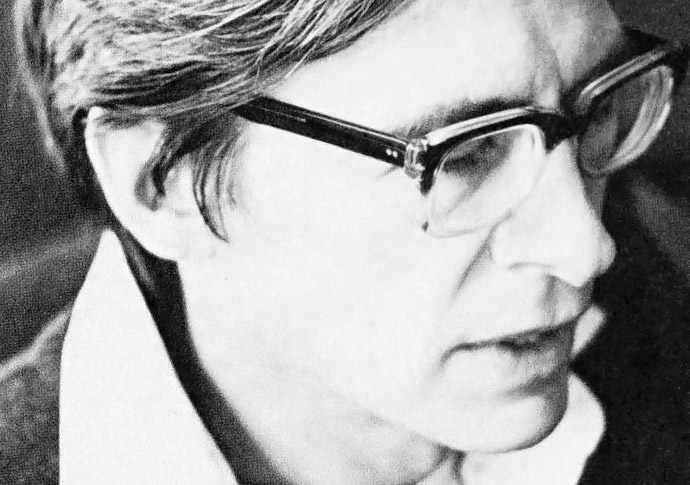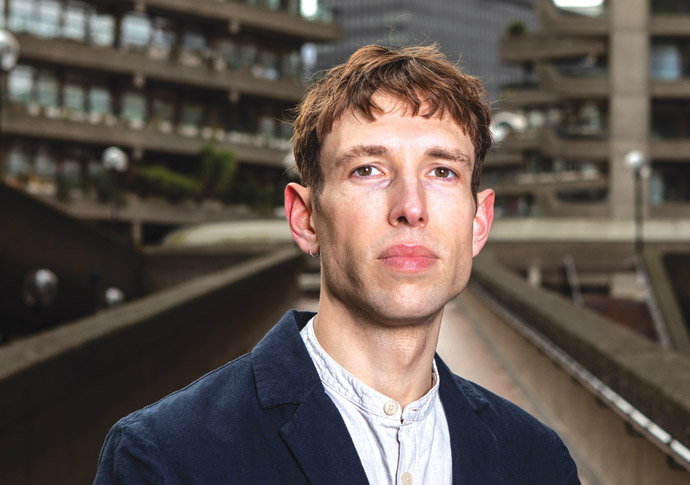Rawl’s rules
John Rawls laid down his blueprint for a fairer society 50 years ago. So why are we still in this mess? Dan Carrier talks to Daniel Chandler whose new book offers answers
Thursday, 21st September 2023 — By Dan Carrier

John Rawls in 1971
CREATING a new democracy and fighting off the threat of populism requires a radical agenda to tackle the multiple crises we face.
From the divisions caused by “culture wars”, democratic apathy, vast inequalities and the climate crisis, the in-box of the political class is overflowing, while possible solutions feel scarce on the ground.
Daniel Chandler, an economist and philosopher at the London School of Economics, offers answers in his new book, Free and Equal: What Would a Fair Society Look Like?
Chandler, who lives in Kentish Town, draws on the work of political philosopher John Rawls, a Harvard academic who pondered on the questions of freedom and equality, looking to build a society that has these aims ingrained in its framework.
“The book came from a feeling of frustration at the lack of political ambition and imagination,” Chandler says.
“We bounce from one crisis to another without a sense of direction.”
Mainstream progressives have, he says, suffered from a lack of an ideological platform in recent decades.
“This can be partly explained by a lack of intellectual reference points,” he argues. “The Right refer to Hayek and Friedman. There is interest in the socialist tradition – but a constructive liberal position has been dormant. There is an ideological vacuum and in it an illiberal and undemocratic populism has emerged.”
Chandler notes how Brexit and the rise of Donald Trump and Boris Johnson highlighted this crisis.
Rawls’ thoughts offers answers. “They are hopeful, forward thinking and with exceptional clarity,” says Chandler. “He called it a realistic utopia, a vision of the best society can be.
“There is a political system dominated by the rich and where race and gender impacts on your life chances.”
Chandler says we need to move from a narrow emphasis on economic growth to gauge a society’s health, and the cornerstone of Rawls’ work is that a fairer society is better for all.
He developed a concept called the “veil of ignorance,” which works like this: collectively we organise society without knowing the circumstances we are born into. If you have no idea what person you may be – ethnicity, gender, inherited wealth – you would ensure there was equality in the distribution of basic needs and opportunity.
Rawls used the example of cutting a cake. If you were handed a knife and told to slice it up, but were not told what piece you’d get, the cake cutter would make sure each was the same size.
“If you did not know your place in life, you would guarantee equality of opportunity to make sure everyone has a fair chance. You would make sure prosperity was widely shared,” he says.

Daniel Chandler [Antonio Olmos]
Chandler cites the principles Rawls promotes under the titles of freedom, equality and sustainability.
“Freedom of sexuality, of religion, of speech – these are basic liberties that should be the cornerstone of a liberal democracy,” he states.
He goes on to build raft of eye-catching ideas to defend these rights.
Large private and corporate donations to parties would be banned. Instead, voters would be given a voucher worth a certain amount to donate to the party of their choice. This has been in place for three elections in Detroit, and has lessened the impact of lobbying, conflicts of interests and money influencing policy making.
“This would be transformative,” Chandler says. “Rather than parties going cap in hand to a donor class, they would have to engage with everyone.”
The same could be applied to media groups to help break the grip of billionaire newspaper barons.
“It could fund public interest news media, getting money out of politics and civil discourse,” he adds.
A Universal Basic Income is another plank, trialled in Canada, Finland, USA and Brazil, resulting in eradicating poverty and creating jobs.
“The current welfare systems creates stigma, causes stress, and can create disincentives to work,” he says. “A UBI eliminates that.
“The existing system is meant to be a safety net yet it does not catch everyone and it tangles others up. A UBI provides a floor on which everyone can safely stand.”
Another idea calls for a Universal Minimum Inheritance – a lump sum given to every citizen when they come of age, paid for by increasing Capital Gains Tax, taxing dividends, raising the higher bands of income tax and increasing inheritance tax.
A wealth tax of around 2 to 6 per cent a year is part of the package. The oft-peddled idea that it would lead to the rich fleeing has no evidence to back it up. And if the rich don’t want to contribute, we’ll do without their wealth and their exploitation.
The third plank covers Rawls’ ideas of intergenerational justice, or sustainability. “This means recognising a commitment we have to future generations and looking after the ecosystems life depends on,” he adds.
“It is not just money that matters, but how we distribute power, control and provide opportunities for self-respect,” he adds. “It moves beyond people being considered as consumers into being valued citizens.”
Rawls wrote about this 50 years ago – so why have we not seen it enter mainstream dialogue?
“While his work was acclaimed within academic circles, he was a shy and private man,” explains Chandler.
He was swimming against the current in the 1970s, as the social contract broke down and free marketeers attacked equality.
“He was moving liberal philosophy in a radical egalitarian direction but politics was moving the other way.
“His ideas articulate political convictions. His liberalism was a commitment to an ideal society and is an antidote to culture wars.
“Inequality has reached untenable levels and most proposals are tinkering at the edges. Rawls said economic justice is not just about redistributing money, but power, control, dignity, self-respect. His theory can transform political debate.”
• Daniel Chandler is discussing his work in person and online on Saturday, September 24, at Conway Hall, Holborn, at 3pm. Details at: www.conwayhall.org.uk/whats-on/event/free-and-equal/
• Free and Equal: What Would a Fair Society Look Like? By Daniel Chandler, Allen Lane, £25